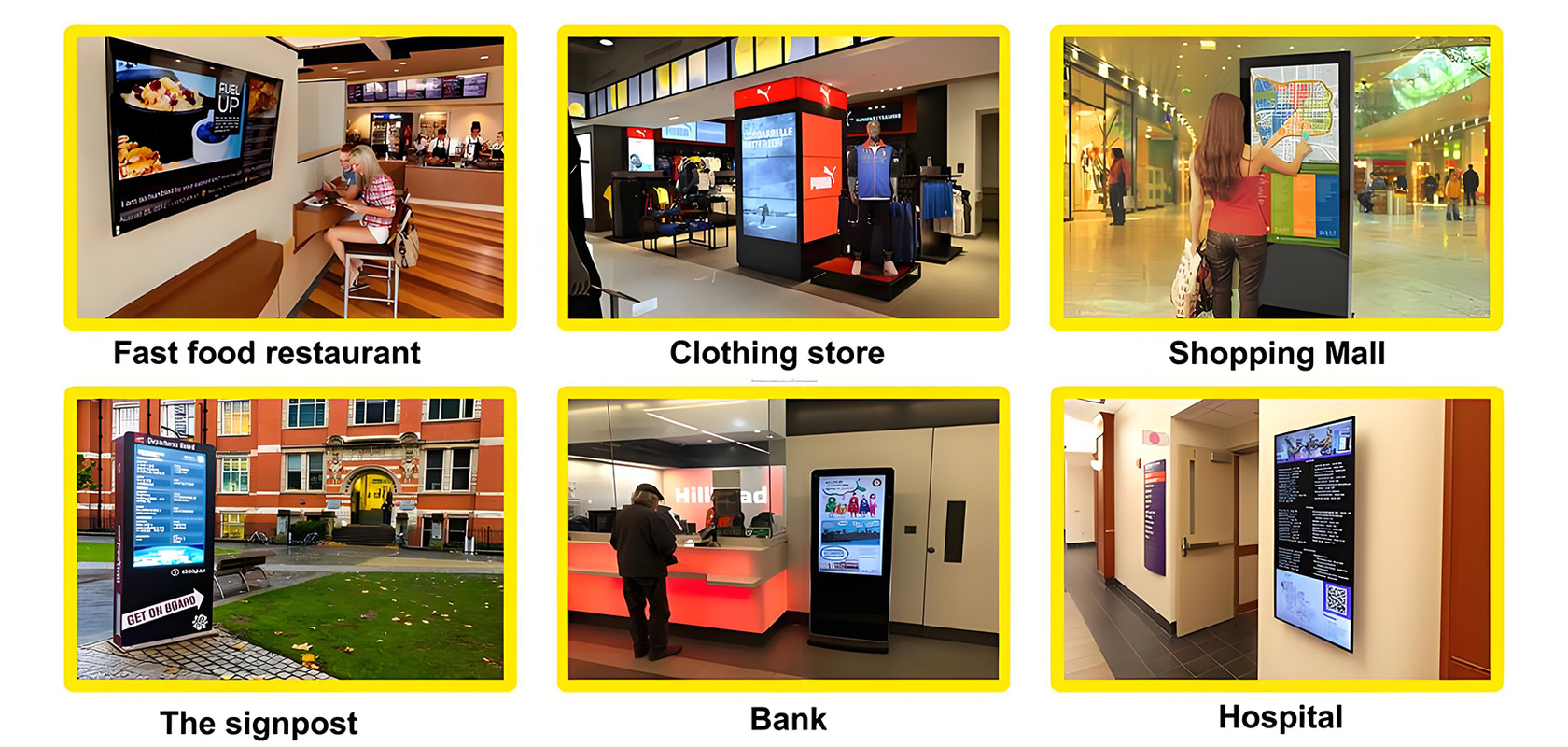The Importance of Content Management in Digital Signage
The Importance of Content Management in Digital Signage.In the realm of modern advertising and communication, digital signage has emerged as a powerful tool. It offers businesses a dynamic and engaging way to interact with their customers, providing real-time updates, promotional messages, and informative content. However, the effectiveness of digital signage hinges on one crucial aspect: content management. This article delves into the importance of content management in digital signage, exploring its role in enhancing customer experience, optimizing operational efficiency, and driving business growth.

1. Enhancing Customer Experience
Digital signage is more than just a display; it's a platform for creating memorable and interactive customer experiences. Effective content management ensures that the content shown on digital signs is not only visually appealing but also relevant and timely. This is crucial in capturing and retaining the attention of viewers.
1.1 Visual Appeal and Engagement
In today's fast-paced environment, visual appeal is paramount. High-quality images, videos, and animations can significantly enhance the attractiveness of digital signage. Content management systems (CMS) allow businesses to easily upload, edit, and schedule high-resolution content, ensuring that displays are always visually stunning.
Moreover, interactive content, such as touchscreens and QR codes, can further engage customers. A well-managed CMS can seamlessly integrate these interactive elements, providing customers with a more immersive experience. For instance, a retail store might use interactive digital signage to allow customers to browse products, view demos, or even make purchases directly from the display.
1.2 Relevance and Personalization
Relevance is key to making digital signage effective. A CMS enables businesses to tailor content based on factors such as time, location, and audience demographics. For example, a restaurant might display breakfast menus during morning hours and switch to lunch and dinner options as the day progresses. Similarly, a retail store in a tourist area could show content in multiple languages to cater to a diverse audience.
Personalization further enhances the customer experience by delivering content that resonates with individual viewers. By leveraging data analytics, businesses can gain insights into customer preferences and behaviors, allowing them to create more targeted and personalized content. For instance, a CMS could use customer data to display personalized recommendations or promotions based on previous purchases.
2. Optimizing Operational Efficiency
Effective content management not only enhances the customer experience but also streamlines operations, reducing costs and improving efficiency.
2.1 Centralized Control and Remote Management
A robust CMS provides centralized control over digital signage across multiple locations. This means that businesses can manage content from a single platform, eliminating the need for manual updates or on-site visits. Remote management capabilities allow for real-time adjustments and updates, ensuring that content is always up-to-date and relevant.
For instance, a retail chain with stores in multiple cities can use a CMS to push new promotional content to all its displays simultaneously. This not only saves time but also ensures consistency in messaging across all locations.
2.2 Scheduling and Automation
Content scheduling and automation are essential features of a CMS. Businesses can pre-schedule content to be displayed at specific times or dates, ensuring that promotional messages are timed perfectly. Automation further reduces the need for manual intervention, allowing for seamless content transitions and reducing the risk of human error.
For example, a movie theater could use a CMS to schedule trailers and promotions for upcoming films. The system would automatically update the content based on the movie schedule, ensuring that viewers are always presented with relevant information.
2.3 Monitoring and Analytics
A CMS also provides monitoring and analytics tools that allow businesses to track the performance of their digital signage. This includes metrics such as viewer engagement, content performance, and operational status. By analyzing these data, businesses can gain insights into what content resonates with their audience and make data-driven decisions to optimize their strategy.
For instance, a retail store might use analytics to identify which promotions generate the most interest and adjust its content strategy accordingly. Similarly, a CMS could alert businesses to technical issues, allowing for prompt maintenance and minimizing downtime.
3. Driving Business Growth
Ultimately, the importance of content management in digital signage lies in its ability to drive business growth. By enhancing the customer experience, optimizing operational efficiency, and providing valuable insights, a CMS can significantly impact a business's bottom line.
3.1 Increased Sales and Revenue
Effective digital signage content can significantly boost sales and revenue. By displaying targeted promotions, businesses can encourage impulse purchases and increase customer spending. A CMS allows for the creation and deployment of compelling promotional content, ensuring that customers are always presented with relevant and attractive offers.
For example, a grocery store might use digital signage to display limited-time offers and discounts, encouraging customers to make additional purchases. Similarly, a restaurant could use digital menus to showcase special deals and upsell items, increasing the average order value.
3.2 Brand Awareness and Loyalty
Digital signage also plays a crucial role in building brand awareness and loyalty. By consistently displaying high-quality content that aligns with a business's brand identity, digital signage can reinforce brand messaging and create a strong visual presence. A CMS enables businesses to maintain a consistent brand image across all their displays, ensuring that customers have a cohesive and memorable experience.
Furthermore, interactive digital signage can enhance customer engagement and foster loyalty. By providing an engaging and interactive experience, businesses can create a positive association with their brand, encouraging customers to return and recommend the business to others.
3.3 Competitive Advantage
In today's competitive marketplace, standing out from the crowd is essential. Digital signage, when managed effectively, can provide businesses with a significant competitive advantage. By offering a dynamic and engaging customer experience, businesses can differentiate themselves from their competitors and attract more customers.
A CMS allows businesses to quickly and easily update their digital signage content, ensuring that they can respond to market trends and customer demands in real-time. This flexibility and agility are crucial in today's fast-paced business environment, where staying ahead of the competition is essential for growth.
Conclusion
In conclusion, content management is a crucial aspect of digital signage. It plays a vital role in enhancing the customer experience, optimizing operational efficiency, and driving business growth. By leveraging a robust CMS, businesses can create visually appealing, relevant, and engaging content that resonates with their audience. This not only improves customer satisfaction but also boosts sales, builds brand awareness, and provides a competitive advantage.
As digital signage continues to evolve, the importance of content management will only grow. Businesses that invest in a comprehensive CMS and prioritize content strategy will be better equipped to harness the full potential of digital signage, creating memorable customer experiences and driving growth in the digital age.
Application scenarios of digital signage








